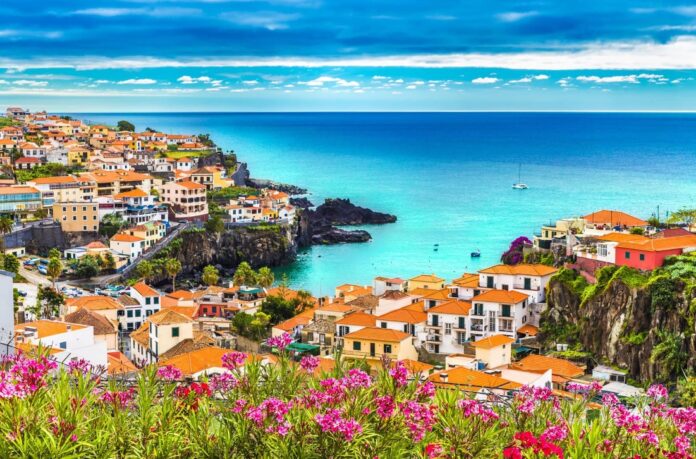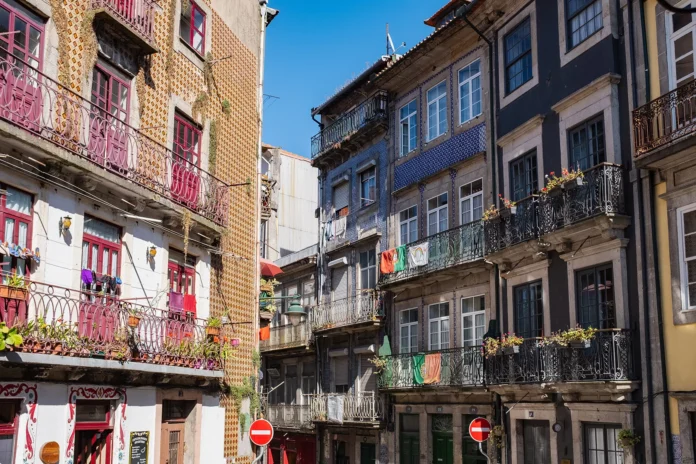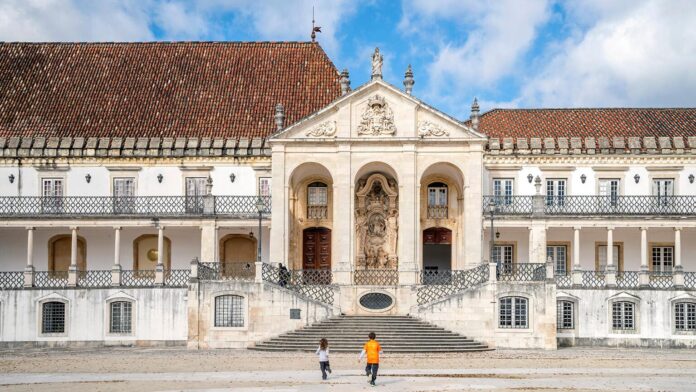
Ah, Portugal! A nation of sun-soaked beaches, picturesque villages, delectable cuisine, and a deeply rooted history. Imagine sipping on port wine in Porto or strolling along the Algarve coast. Relocating to another country, though, isn’t merely about the idyllic moments; it’s about establishing roots in a new land. Our comprehensive guide below walks you through some crucial aspects of moving to this Iberian gem.
Choosing the Right Location in Portugal

Portugal, despite its modest size, offers a diverse tapestry of landscapes and cultural experiences. City lovers might find Lisbon, with its bustling nightlife and historical charm, the perfect setting. However, if you crave tranquillity, towns like Sintra, with its fairytale palaces, maybe your calling. On the other hand, the coastal allure of the Algarve, known for its pristine beaches, could make it a dream locale for sun-seekers.
Northern regions such as Porto have a cooler climate and thriving wine industries. Here, cobbled streets echo stories of ancient mariners and trade routes. Yet, those wishing for island life might consider the Azores or Madeira. Both offer an enchanting blend of European and tropical flavors, making them unique relocation choices. Considering your lifestyle and aspirations is vital when picking a destination. Moving to Portugal, in its varied beauty, caters to urban aficionados, beach bums, and country lovers alike. Weighing factors like climate, job opportunities, and cultural activities will help pinpoint your ideal home base.
Visa and Immigration Requirements
Before embarking on your Portuguese adventure, familiarize yourself with the visa landscape. European Union (EU) citizens enjoy the freedom to reside in Portugal without a visa. For non-EU citizens, the process might be lengthier but is navigable with appropriate planning. Begin by identifying the type of visa you need – whether for work, study, or retirement.
Upon arriving, securing a residence permit becomes paramount for a long-term stay. Non-EU nationals typically need a valid visa to initiate this process. It’s prudent to remember that each type of visa has specific requirements – some might need proof of employment, while others may ask for evidence of financial self-sufficiency.
Seek advice from local immigration offices or legal professionals. They can guide you through paperwork, deadlines, and interviews. Keeping abreast of evolving regulations ensures a smoother transition into your new Portuguese life.
Finding Accommodation in Portugal

House-hunting in Portugal is an exciting journey, offering everything from modern apartments in Lisbon’s heart to rustic farmhouses in Alentejo. Begin your quest by researching the property market and understanding local pricing trends. Engage with reliable estate agents who can offer insights into the best neighborhoods fitting your needs.
While major cities provide cosmopolitan living, rural areas offer affordability and serenity. Long-term rentals generally require a contract, and it’s customary to provide a security deposit. Ensure you’re aware of all terms and conditions before signing any document.
If buying property is your aim, Portugal’s Golden Visa program could be an enticing option. It permits non-EU citizens to gain residency by making specific investments in the country. Partner with a trustworthy solicitor to navigate property laws and secure your dream home.
Employment and Career Opportunities
Portugal’s diverse economy offers myriad opportunities, from tourism and technology to agriculture and fishing. Cities like Lisbon and Porto have blossoming tech hubs, drawing entrepreneurs and digital nomads alike. For those with a knack for languages, teaching English can be a lucrative avenue.
However, knowing the local job market intricacies is essential. While some sectors are growing, others, like traditional manufacturing, might be shrinking. Networking plays a crucial role; attending local events or joining expat groups can provide invaluable industry insights.
Lastly, understand the nuances of Portuguese work culture. Respect for hierarchy and relationship-building often underpins business dealings. Equipping oneself with such knowledge not only aids in job hunting but ensures success once employed.
Education and Schools in Portugal

For families making the move, education is paramount. Portugal boasts a mix of public, private, and international schools. The public system is free for all residents, with lessons primarily in Portuguese. It offers a holistic curriculum, encompassing both academics and extracurricular activities.
Those inclined towards an English-medium education might opt for international schools. These institutions often follow globally recognized curricula like the International Baccalaureate. However, they come with higher tuition fees compared to their public counterparts.
Choosing the right school entails evaluating several factors – location, teaching methodology, and extracurricular options. It’s worth visiting schools, interacting with faculty, and seeking feedback from current students to make an informed choice.
Healthcare and Medical Services
The Portuguese healthcare system is ranked highly globally, offering both public and private facilities. Residents have access to the National Health Service (NHS), which provides subsidized care. However, some expats opt for private health insurance, ensuring quicker access to specialists and private hospitals.
Pharmacies, easily identifiable with a green cross, are abundant. They not only dispense medication but also offer expert advice on minor ailments. For emergencies, major cities have well-equipped hospitals and ambulance services are efficient.
Remember to apply for a health card once you secure residency. This card ensures access to the NHS, safeguarding you and your loved ones. Regular check-ups and a good understanding of the local healthcare landscape ensure a healthy life in your new homeland.
Language and Cultural Integration
While many Portuguese speak English, especially in tourist areas, learning the language offers deeper cultural immersion. Enrolling in language classes or engaging in language exchange programs can be beneficial. Local community centers often offer courses tailored to newcomers.
Embracing Portuguese traditions goes beyond language. Attend local festivals, indulge in their culinary delights, and engage in regional activities. Whether it’s Fado music in a local tavern or celebrating São João in Porto, immersing yourself enriches your relocation experience.
View this post on Instagram
Building connections with neighbors and community members can foster a sense of belonging. Mutual respect and genuine interest in their way of life pave the way for meaningful relationships, making your new country truly feel like home.
Final Thoughts
Transitioning to a life in Portugal is more than just a change of address; it’s about embracing a new culture, adapting to different rhythms, and weaving into the vibrant fabric of Portuguese society. With its alluring mix of old-world charm and modern comforts, this European nation promises a life filled with enriching experiences.
While challenges are part and parcel of every relocation, arming yourself with knowledge ensures that your Portuguese dream becomes a delightful reality. Boa sorte (good luck) on your Iberian adventure!











